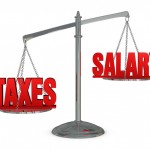The CRA guide T4060 outlines individual taxpayers’ rights for objection and appeal including:
1) It is your right to object to an assessment o r reassessment if you think the law has been applied incorrectly. You must file your objection within the later of the following two dates: one year from the filing due date of the annual income tax return, OR 90 days after the date the notice of assessment or reassessment is mailed. Interest will continue to accumulate during this period.
r reassessment if you think the law has been applied incorrectly. You must file your objection within the later of the following two dates: one year from the filing due date of the annual income tax return, OR 90 days after the date the notice of assessment or reassessment is mailed. Interest will continue to accumulate during this period.
2) When you file an objection, a CRA appeals officer will start an impartial review of your case. If you are not satisfied with the decision, the appeals officer will inform you on how you can appeal to the Tax Court of Canada.
3) You do not have to pay taxes under objection until you have had an impartial review by the CRA or, if you have filed an appeal, until the Tax Court of Canada has issued its decision. However, interest charges will continue to accumulate during this period. If the CRA considers that the collection of the amount is in jeopardy, the CRA will apply to the court for approval to start immediate collection action. Should you lose your appeal at the Tax Court of Canada, you may appeal the decision to a higher court. However, you will be required to pay the disputed taxes in full or post acceptable security.
4) The courts are empowered under section 179.1 of the Income Tax Act to impose a penalty of 10% of tax when an appeal proves to be frivolous or groundless and one of the main purposes for appealing was to defer the payment of tax.
CRA’s collection policies exist to ensure the law is fairly applied to all taxpayers. These procedures allow CRA to consider each individual’s financial situation. This is an obligation the CRA have to Canadian taxpayers, the vast majority of whom do pay their taxes in full and on time.
 Leave a comment
Leave a comment